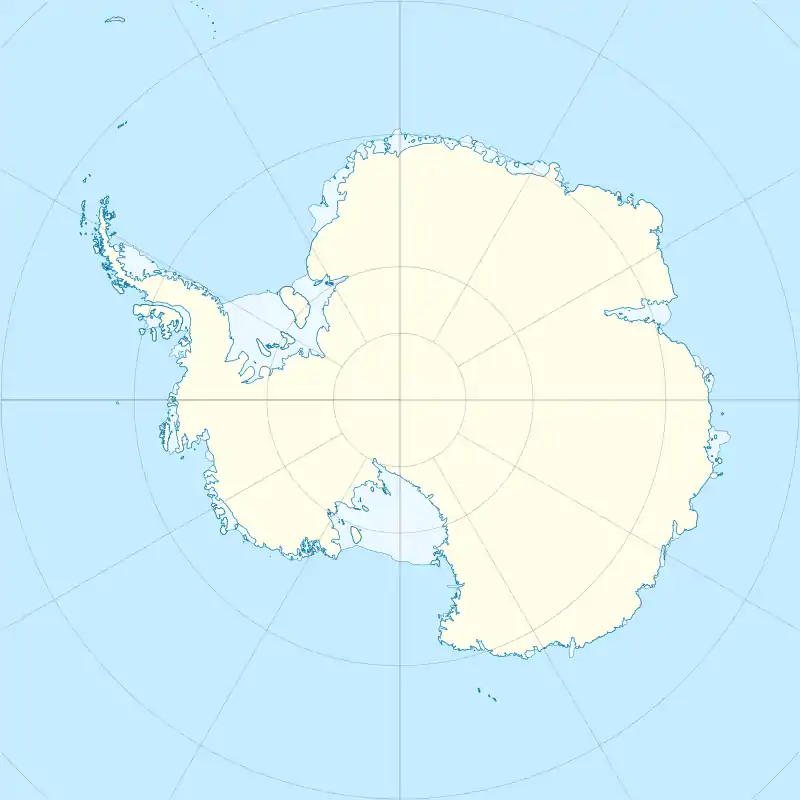Avian Island
Avian Island is an island, 1.2 km (0.7 mi) long and 40 metres (130 ft) high, lying close off the south tip of Adelaide Island, Antarctica. It was discovered by the French Antarctic Expedition, 1908–10, under Jean-Baptiste Charcot, and visited in 1948 by the Falkland Islands Dependencies Survey, who so named it because of the large number and variety of birds (avians) found there.
 Avian Island Location in Antarctica | |
| Geography | |
|---|---|
| Location | Antarctica |
| Coordinates | 67°46′15″S 68°53′10″W |
| Administration | |
| Administered under the Antarctic Treaty System | |
| Demographics | |
| Population | Uninhabited |
Birds
The island has been identified as an Important Bird Area by BirdLife International because it supports a large breeding colony of Adélie penguins (35,000 pairs), as well as imperial shags (670 pairs), south polar skuas (880 pairs), southern giant petrels (250 pairs), kelp gulls and Wilson's storm petrels. It also holds the southernmost record of breeding brown skuas.[1] The island is protected as Antarctic Specially Protected Area (ASPA) No.117 for its outstanding ornithological significance.[2]
Skeen Rocks
To the south are Skeen Rocks, (67°47′S 68°54′W), two rocks which were named by the United Kingdom Antarctic Place-Names Committee (UK-APC) for Lieutenant Michael G.C. Skeen, Royal Navy, officer in charge of the helicopter flight, HMS charting this area in 1961–63.[3]
References
- "Avian Island". BirdLife data zone: Important Bird Areas. BirdLife International. 2012. Archived from the original on 10 July 2007. Retrieved 9 December 2012.
- "Avian Island, Marguerite Bay, Antarctic Peninsula" (PDF). Management Plan for Antarctic Specially Protected Area No. 117: Measure 1. Antarctic Treaty Secretariat. 2002. Retrieved 12 June 2013.
- "Skeen Rocks". USGS. Retrieved 25 October 2023.
![]() This article incorporates public domain material from "Avian Island". Geographic Names Information System. United States Geological Survey.
This article incorporates public domain material from "Avian Island". Geographic Names Information System. United States Geological Survey.
.svg.png.webp)